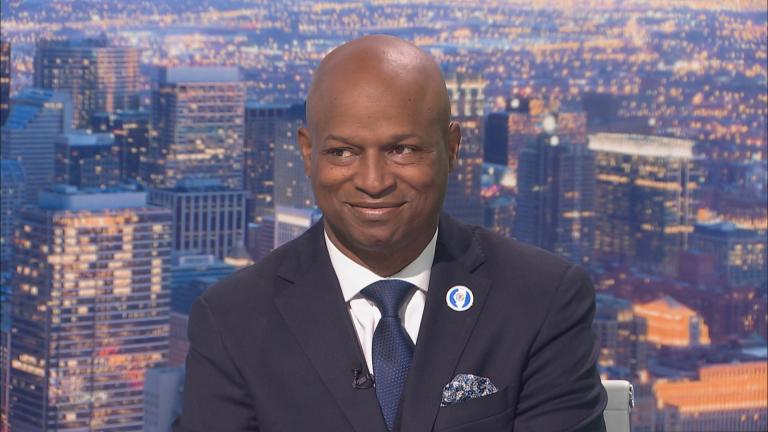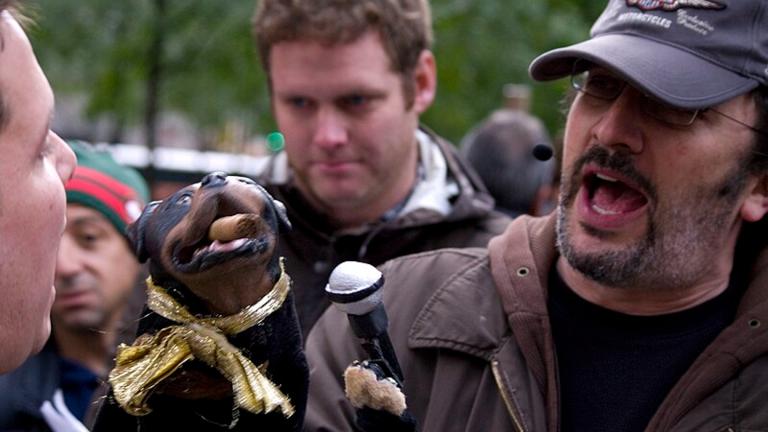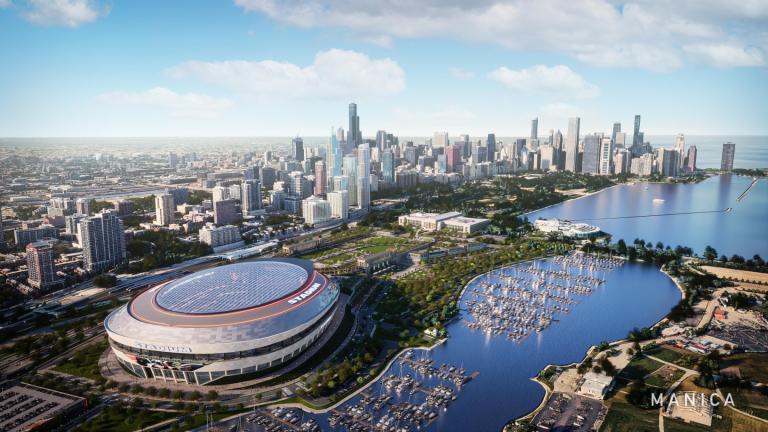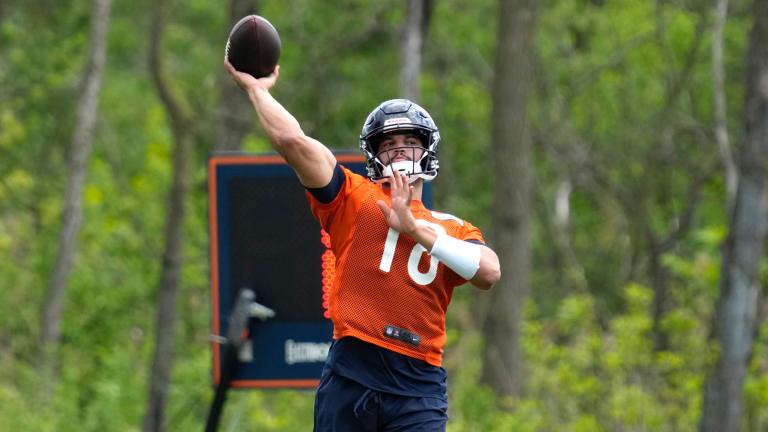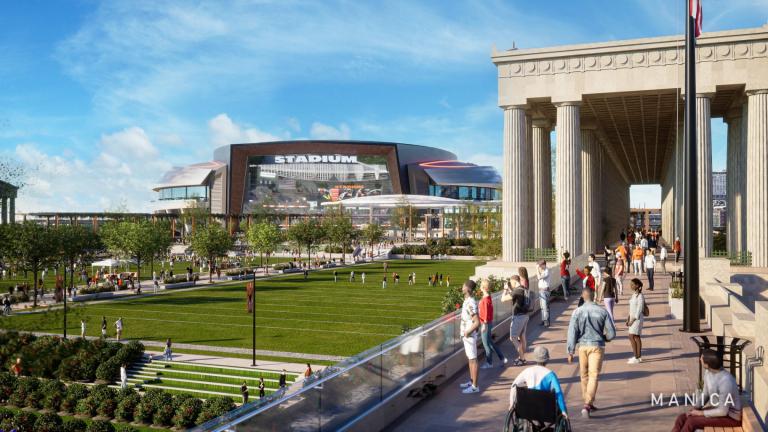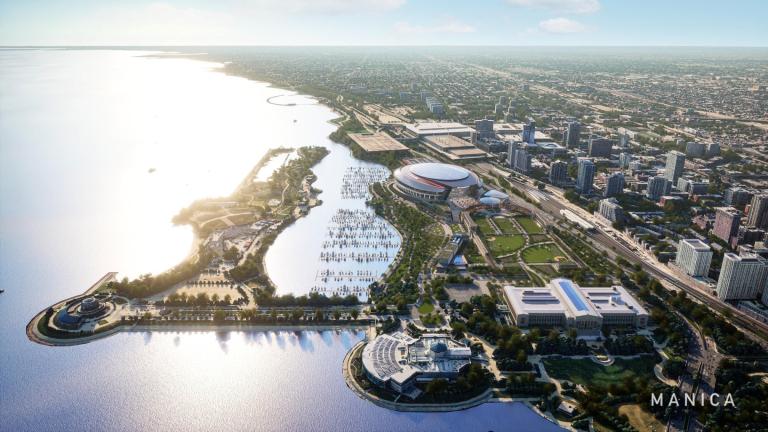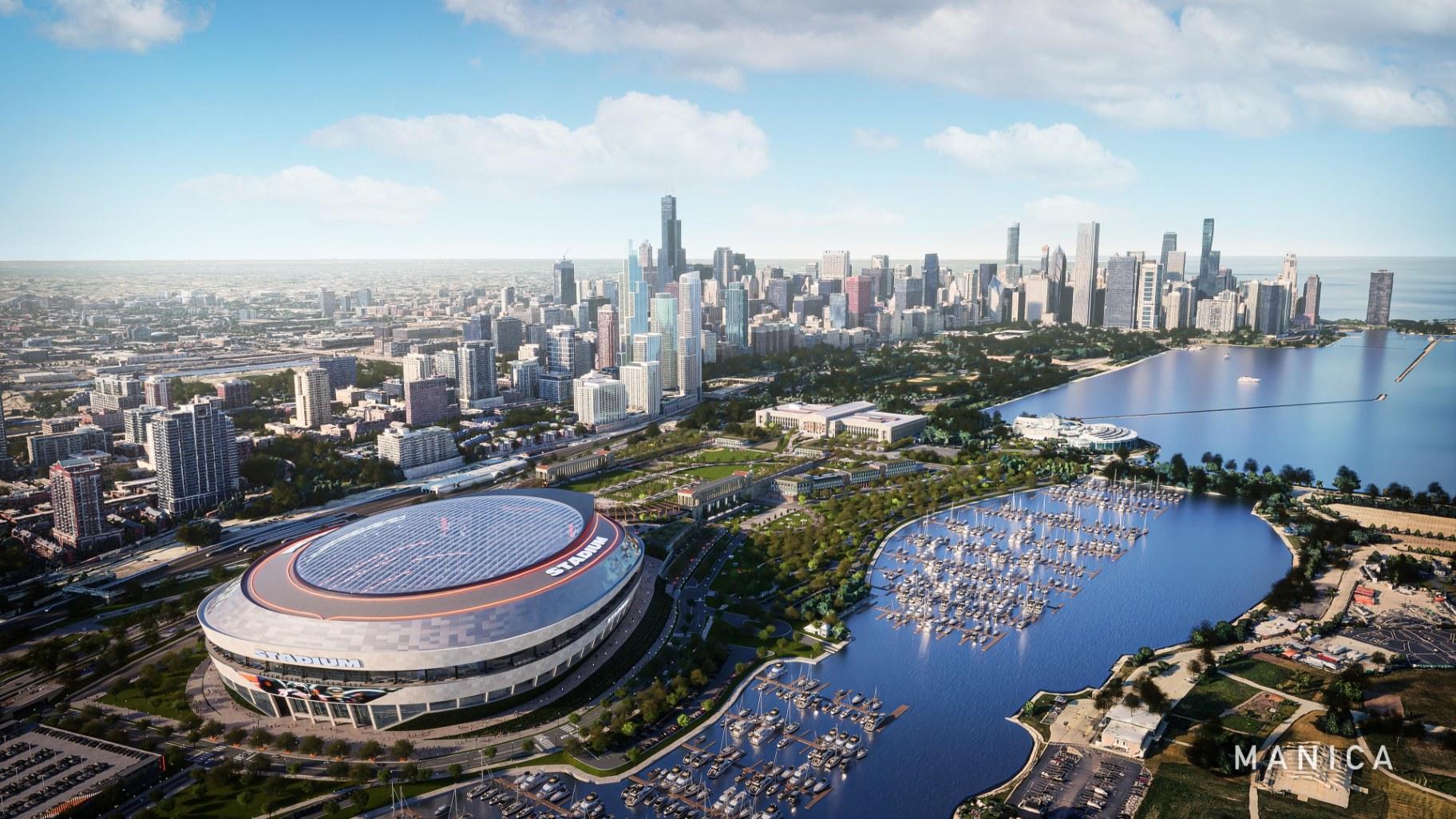 A rendering of the proposed new stadium for the Chicago Bears on a redesigned Museum Campus. (Credit: Chicago Bears)
A rendering of the proposed new stadium for the Chicago Bears on a redesigned Museum Campus. (Credit: Chicago Bears)
The Chicago Bears unveiled plans Wednesday to build a futuristic domed lakefront stadium at the center of a reimagined Museum Campus and asked taxpayers to pick up approximately $2.4 billion of the total $4.75 billion cost of the project.
Mayor Brandon Johnson, who took office less than a year ago after vowing to end decades of disinvestment on Chicago’s West and South sides, enthusiastically endorsed the project, calling the renderings of the futuristic oval-shaped stadium with a translucent roof “miraculous.”
“Today’s announcement is bigger than football,” said Johnson, touting the team’s investment in the city as a vote of confidence in the city’s future and his leadership. “This is a true public investment.”
Boosters said the 77,000-seat stadium and a reinvigorated Museum Campus will be able to host civic events and concerts and special events year-round, creating thousands of new, good-paying jobs and boosting tax revenues, which Johnson said he would reinvest into programs designed to prevent violence while creating jobs for young people, building affordable housing and expanding mental health services. That promise was at the center of his 2023 campaign for mayor.
“Simply put, this is going to reinvigorate the entire city of Chicago,” Johnson said. “It will be the crown jewel of the city of Chicago.”
Watch the Bears’ video detailing the proposal.
Johnson said the Bears’ plan met the markers he laid down to win his support by ensuring the public would directly benefit from the investment of public money on public land.
The plan calls for Soldier Field to be demolished, leaving only colonnades from the original structure, dedicated in 1925 as a memorial to U.S. soldiers who died in combat and the home of the once and perhaps future Monsters of the Midway since 1971.
Johnson and Bears President Kevin Warren sought to cast the plan for the new publicly owned stadium as a fulfillment of Daniel Burnham’s 1909 plan for Chicago, even though that plan called for the lakefront to remain clear of development and open to the public.
If the project moves forward, it faces an all-but-certain legal challenge over the city’s Lakefront Protection Ordinance, which does not allow “further private development be permitted east of Lake Shore Drive.”
The new Bears stadium is set to be built on the same site that former Mayor Rahm Emanuel wanted for the Lucas Museum, on what is now a parking lot south of Soldier Field. Star Wars creator George Lucas dropped his plans in 2016 in the face of unrelenting opposition and built the museum in Los Angeles.
 A rendering of the proposed new stadium for the Chicago Bears on a redesigned Museum Campus. (Credit: Chicago Bears)
A rendering of the proposed new stadium for the Chicago Bears on a redesigned Museum Campus. (Credit: Chicago Bears)
Johnson said the project is “aligned” with Burnham’s vision because it includes 20% more open space on a more accessible Museum Campus.
“I’m fully confident that it works with the confines of the ordinance,” said Johnson, declining to answer a question from WTTW News about whether he was prepared to spend tax dollars to fight the looming legal challenge.
Friends of the Parks, which sued to block the Lucas Museum, responded to the announcement that the Bears were moving ahead with plans to build east of DuSable Lake Shore Drive with fury.
“We are told that a new domed stadium on protected lakefront land will make Chicago a great city,” the group said in a statement. “We are already a great city — in large part due to our protected lakefront. As is so often the case in Chicago, the powerful and wealthy are demanding that our entire city stop and fast track their plans to expand operations on the people’s lakefront.”
The group did not vow to sue the city, saying there were still too many questions about the proposal, but made it clear the Bears should rethink their plans and lawmakers should resist the team’s call to act immediately.
“Does it seem reasonable that the Chicago Bears should get their wants satisfied immediately while poor neighborhoods suffer from benign neglect?” the group asked.
The group had encouraged the Bears to build a stadium south of the Loop on what was the former Michael Reese hospital campus, but Warren told reporters Wednesday that site was not feasible.
The plan calls for the Bears to spend $2.025 billion directly to build the $3.225 billion stadium, set to feature a north wall made of glass to showcase the city’s Michigan Avenue skyline. The team also plans to borrow $300 million from the National Football League.
The cost of subsidizing the stadium will not be borne by Chicagoans, Johnson said. Instead, it will be paid for with an existing 2% tax on stays in hotels, hitting the wallets of tourists and visitors to Chicago hardest.
That is the same way former Mayor Richard M. Daley bankrolled the 2003 renovation of Soldier Field, which cost taxpayers $609 million. Taxpayers still owe nearly $590 million of that debt, according to estimates.
“What it does not call for are raising existing taxes or implementing any new taxes,” Johnson said. “I’m going to repeat that one more time to make sure everybody gets that. This project will result in no new taxes on the residents of Chicago.”
Johnson and Warren emphasized the team will work to ensure businesses owned by Black, Latino and female Chicagoans are hired to build the stadium.
But the reaction of Gov. J.B. Pritzker and House Speaker Emanuel “Chris” Welch to the request for a massive taxpayer subsidy was much less than rapturous, as both doused the excitement the Bears hoped to generate with buckets of cold water.
“I remain skeptical about this proposal,” Pritzker said hours before the Bears’ announcement at an unrelated event. “I wonder if it is a good deal for taxpayers. There are a lot of priorities that the state has, and I’m not sure this is among the highest priorities for taxpayers.”
The Bears’ plan relies on $900 million from the city’s hotel tax, made possible by a 40-year extension and restructuring of the debt already held by the Illinois Sports Facilities Authority, incurred to finance the renovation of Soldier Field and to build Guaranteed Rate Field, the home of the Chicago White Sox. That requires the approval of the Illinois General Assembly.
In addition, the proposed new stadium requires at least $325 million in infrastructure improvements to speed cars and eliminate traffic gridlock to the redesigned Museum Campus, team officials said.
 A rendering of the proposed new stadium for the Chicago Bears on a redesigned Museum Campus. (Credit: Chicago Bears)
A rendering of the proposed new stadium for the Chicago Bears on a redesigned Museum Campus. (Credit: Chicago Bears)
It will take another $1.1 billion in taxpayer funds to surround the new stadium with 14 acres of new athletic fields and open space, as well as a pedestrian mall and pavilion.
It was not clear where those funds will come from, although Chicago’s Chief Financial Officer Jill Jaworski told reporters that federal and state grants could cover much of those costs.
Warren and Johnson said that would provide much-needed space for Chicago Public Schools teams to play games and for the Chicago Park District to expand its programming. Warren cast those efforts as a response to a crisis among Chicago’s youth and a way to prevent them from falling victim to crime and violence.
Warren said the team would ask state lawmakers to act before the spring legislative session ends before Memorial Day, warning that costs will only escalate.
But a spokesperson for Welch said the speaker’s focus would remain on passing a budget — and noted the tepid reaction that greeted the Bears’ request for more than $1 billion in subsidies to get the stadium project off the drawing board.
“In the current legislative environment, with many important budget pressures, there hasn’t been a strong appetite for these projects,” said spokesperson Jaclyn Driscoll.
Senate President Don Harmon (D-Oak Park) told reporters he shared the governor’s skepticism.
Bears officials used Wednesday’s event at Soldier Field to begin attempting to convince state officials that the costs of not subsidizing the Bears stadium outweighed the upfront cost, sharing projections that the project would create 43,000 construction jobs and add $8.4 billion to the economy during construction.
Once the new stadium is built, it would create 4,200 permanent jobs and add $456 million to Chicago’s economy annually, while boosting tax revenues from the Bears’ operations by nearly 60% for the city, according to the team’s projections.
The Bears’ renewed focus on remaining in Chicago comes more than two years after the storied franchise bought the former Arlington International Racecourse property for $197.2 million and announced plans to build “an enclosed state-of-the-art stadium and multi-purpose entertainment district.”
Those plans are now on ice, Warren told reporters.
 A rendering of the proposed new stadium for the Chicago Bears on a redesigned Museum Campus. (Credit: Chicago Bears)
A rendering of the proposed new stadium for the Chicago Bears on a redesigned Museum Campus. (Credit: Chicago Bears)
Contact Heather Cherone: @HeatherCherone | (773) 569-1863 | [email protected]

